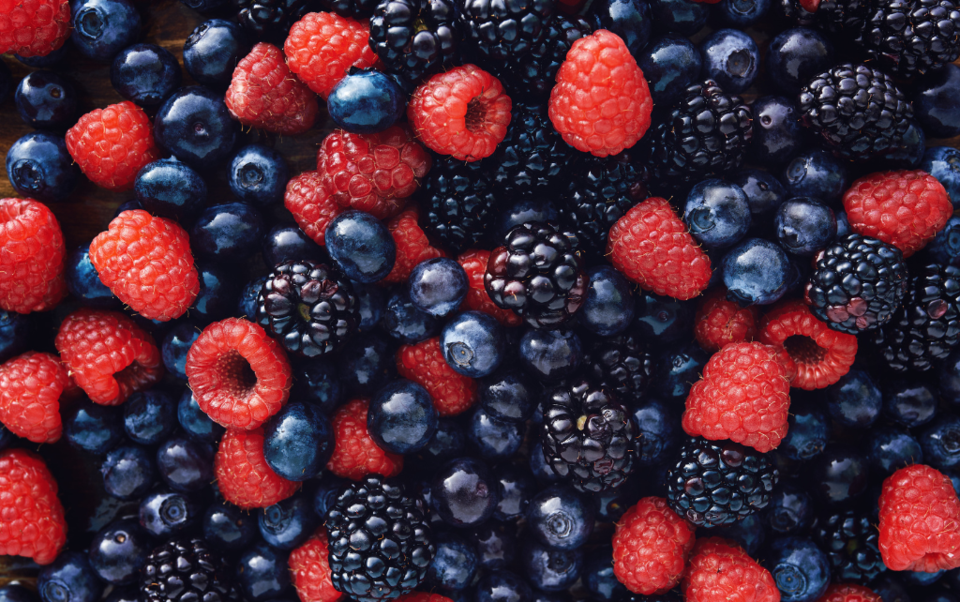There is growing evidence showing that certain foods can help improve your overall mood and reduce the risks and symptoms of depression.
According to the Arthritis Society Canada, while no single food or nutrient can prevent or cure depression, consuming a variety of vegetables, lean protein, legumes, nuts, whole grains, and low-fat dairy can significantly enhance your mental and physical health.
Here are five foods that could help boost your mood and combat the seasonal blues, according to the Arthritis Society Canada.
1. Fatty fish

Some studies have shown that individuals with compromised mental health often have lower levels of omega-3 fatty acids (omega-3s). Omega-3s may help improve mood and alleviate depression by reducing inflammation, oxidative stress, and regulating neurotransmitter pathways and cell signalling. Fatty fish such as salmon, sardines, mackerel, herring, anchovies, oysters, and cod liver oil are excellent sources of omega-3s.
“If you don’t eat fish, there are plant sources of omega-3s like walnuts, algae oil, hemp seeds, flaxseeds, and chia seeds,” says Cristina Montoya, a registered dietician, living with arthritis herself.
Two types of omega-3s, Eicosapentaenoic acid (EPA) and Docosahexaenoic acid (DHA), are linked with a reduced risk of mood disorders like depression.
If you’re considering taking omega-3 supplements, be aware that many options vary in effectiveness and quality, so they should be tailored to your eating habits.
Be sure to consult with your healthcare provider before taking new supplements to ensure they don’t interfere with your current medication.
2. Poultry

Several studies suggest that lower levels of tryptophan in the body may be associated with depression.
“Did the Christmas turkey make you sleepy? That’s because it contains high levels of tryptophan, an essential amino acid that the body does not produce and must be obtained from dietary sources,” says Montoya.
Tryptophan is the sole precursor of serotonin, a vital neurotransmitter that plays a central role in regulating sleep, appetite, and impulse control. Once serotonin has been produced from tryptophan, it can convert into melatonin, a crucial molecule that regulates the body’s sleep-wake cycle.
Main dietary sources of tryptophan include protein-rich foods like nuts, poultry, salmon, dairy, eggs, and crab. Plant-based alternatives include leafy greens, sunflower seeds, soybeans, pumpkin seeds, mushrooms, broccoli, and peas.
3. Berries and beets

Fruits and vegetables with red to purplish-blue colouring are rich in anthocyanins. These antioxidants can protect against oxidative stress and boost blood flow to brain regions responsible for emotional management and cognitive control. These foods are also known to enhance gut health, which is a key contributor to mental well-being.
Consider incorporating blackberries, blueberries, currants, grapes, plums, cherries, beets, eggplants, red cabbage, red onions, and purple potatoes into your diet.
4. Beans and lentils

Beans and lentils are excellent sources of plant-based protein, fibre, and most importantly, B vitamins. B vitamins play a vital role in producing essential neurotransmitters like serotonin, dopamine, norepinephrine, and gamma-aminobutyric acid, which are crucial for balancing mood. Research has shown that low levels of B vitamins, especially B6 and folate, are linked to mood disorders such as depression. Beans and lentils are also rich in zinc, magnesium, selenium, and non-heme iron, which positively impact mood.
5. Dark chocolate

Some preclinical studies suggest that the polyphenolic compounds in dark chocolate have antioxidant and anti-inflammatory effects that could potentially reduce symptoms of depression.
A 2022 study conducted in Korea involving 18 healthy adults discovered that consuming 30 grams of 85% cocoa dark chocolate daily for three weeks improved negative mood. The researchers observed that the beneficial effects were linked to changes in gut microbiota. Dark chocolate exhibited prebiotic properties, promoting the growth and variety of beneficial bacteria.
While it's nice to indulge in some dark chocolate occasionally, just remember to practice mindfulness to fully enjoy and savour each treat without overindulging.




